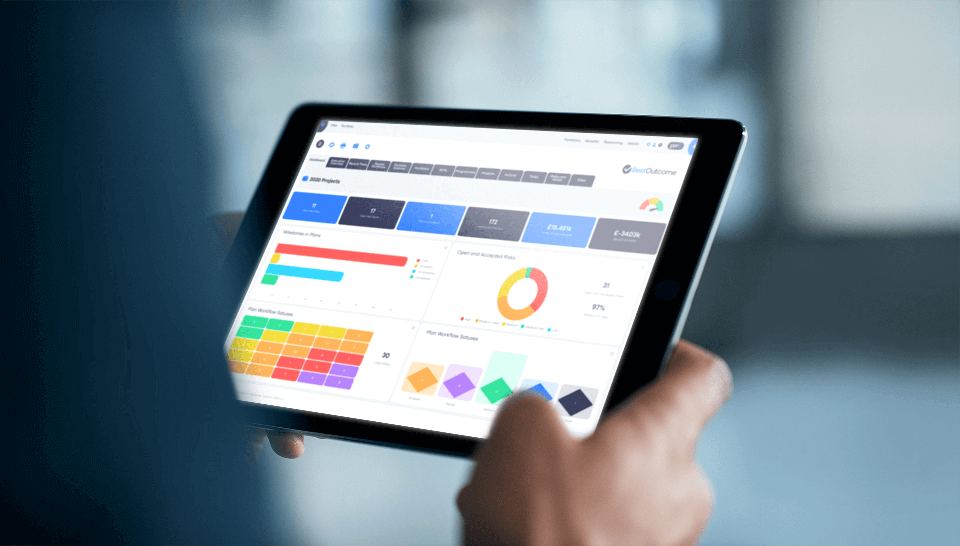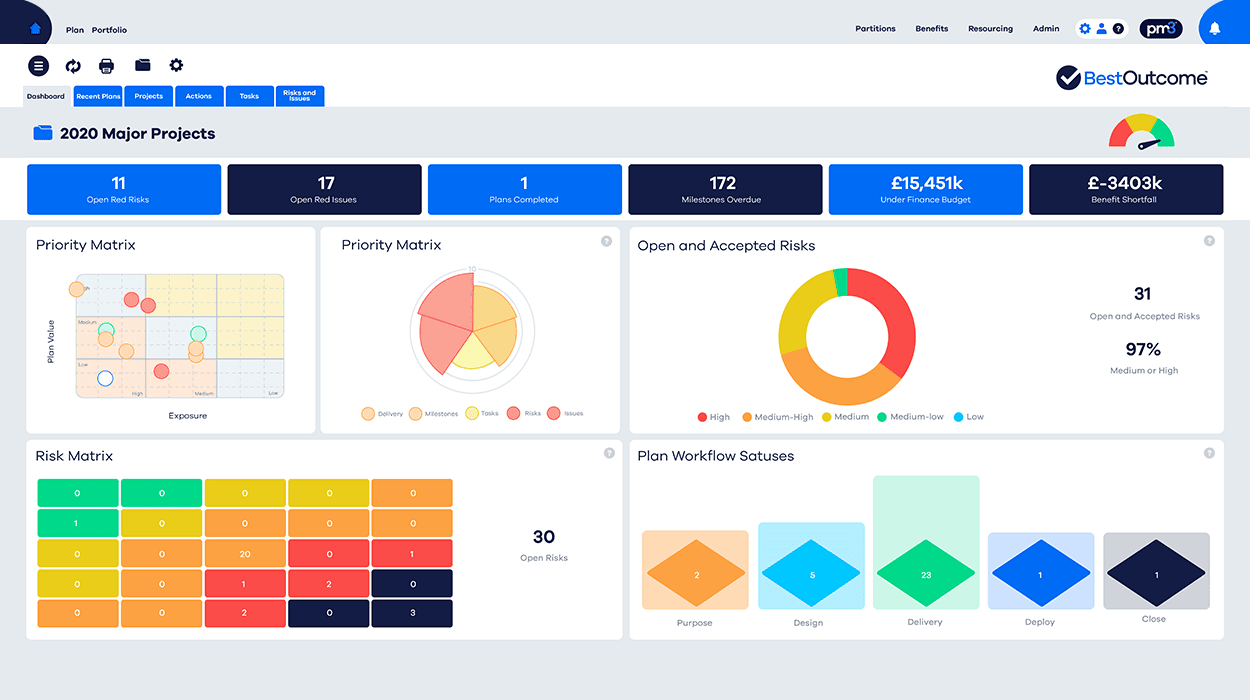In today’s digital age, the public sector is undergoing a profound transformation fueled by technology.
From local councils to central government agencies, the adoption of digital initiatives has become a necessity to enhance service delivery and meet citizens’ evolving needs.
However, this journey is not without its challenges.
Legacy systems, skills shortages and cybersecurity concerns loom large, underscoring the urgent need for proactive solutions.
In this article, we explore the landscape of digital transformation in the public sector, highlighting key themes and innovative solutions that are driving this monumental shift forward, with business leaders playing a crucial role in steering these initiatives.
Also known as digitisation, digital transformation in the public sector encompasses a broad spectrum of initiatives aimed at leveraging new technologies to streamline processes, enhance data sharing and decision-making, and ultimately improve public services. From the integration of health and social care to addressing challenges posed by legacy systems, the journey towards a digitally empowered government is multifaceted and complex. Digital technology plays a crucial role in reshaping business processes, enabling organisations to adapt and respond to changing market requirements and challenges.
Despite the immense potential of digital transformation, the journey is not without its challenges. Outdated infrastructure, siloed processes and cybersecurity concerns present significant obstacles and need to be addressed proactively.
Moreover, the COVID-19 pandemic has highlighted the importance of digital resilience, pushing governments to accelerate their digital agendas to ensure continuity of services amidst unprecedented disruptions. Digital transformation means more than simply adopting new technologies; it’s about integrating these technologies into existing processes to unlock new sources of value.
According to a report by the UK Parliament ‘Digital transformation in government: addressing the barriers to efficiency’, one of the major hurdles faced by government departments is the shortage of digital skills.
As of 2024, the civil service employs approximately 4.5% of digital, data and technology professionals, which falls significantly short of the required number compared to an industry average of between 8% and 12%.
Consequently, there is a pressing need to recruit more skilled professionals in order to meet this demand.
This shortage not only impedes progress but also highlights the urgent need for upskilling and reskilling initiatives to bridge the UK skills gap.
Initiatives like the Digital Transformation Programme, as outlined by the Local Government Association, plays a crucial role in fostering collaboration among councils to develop digital solutions that can be replicated and scaled across different public sector organisations.
As highlighted by Deloitte, the shift towards digital systems requires a holistic approach encompassing not just technological upgrades but also cultural and organisational changes.
Embracing methodologies like design thinking and prioritising user experience are imperative to ensure that digital initiatives are citizen-centric and inclusive.

In the fast-paced digital landscape of today, developing a robust digital transformation strategy is crucial for public sector organizations to stay competitive and meet evolving citizen needs. A well-crafted digital transformation strategy outlines how an organization will leverage digital technologies to achieve its business goals and enhance customer experiences.
To embark on this journey, organizations should start by identifying their business objectives and assessing their current digital maturity. This initial step helps in understanding where they stand and what gaps need to be filled. Next, defining a target digital state and developing a roadmap to achieve it becomes essential.
A successful digital transformation strategy should encompass a clear vision, goals, and objectives, along with a detailed plan for implementation and measurement. It should identify the key digital technologies that will support the transformation, such as cloud computing, artificial intelligence, and the Internet of Things (IoT). Additionally, the strategy must outline the organizational changes required, including shifts in culture, leadership, and talent management.
Key elements to consider when developing a digital transformation strategy include:
By developing a comprehensive digital transformation strategy, public sector organizations can ensure that their digital transformation efforts are aligned with their business goals and are well-positioned to achieve success in the digital age.
Healthcare is one of the sectors most profoundly impacted by digital transformation.
The digital transformation journey in healthcare involves unique challenges and stages, such as aligning objectives with business goals, co-creating solutions across departments, and adopting new mindsets and approaches to collaboration.
With the integration of electronic health records, telemedicine and AI-powered diagnostics, the potential to is there to completely transform the way healthcare services are delivered and managed.
There’s no doubt that the COVID-19 pandemic has further accelerated this phenomenon by highlighting the critical role of technology in continuity of care and patient outcomes.
For instance, healthcare organisations are increasingly leveraging artificial intelligence to enhance decision-making and optimise resource management.
From predictive analytics to personalised medicine, AI holds the promise of more efficient healthcare delivery, enabling stakeholders to make informed decisions and improve patient experiences at scale.
Did you know? Our NHS PPM Tool, PM3, has thousands of users. Our clients include NHS Trusts, CCG’s, Cancer Alliances, Sustainability and Transformational Partnerships (STP)s, Integrated Care Systems (ICS)s and Integrated Care Providers (ICP)s as well as NHS England and Improvement, HEE and NHS Professionals.
Another area witnessing significant transformation is procurement.
Traditionally plagued by bureaucracy and inefficiency, government procurement processes are undergoing a digital overhaul to streamline operations, enhance transparency and drive cost savings.
Digital procurement platforms leverage automation, data analytics and blockchain technology to simplify the sourcing process, mitigate risks and ensure compliance with regulatory requirements.
The adoption of digital procurement solutions is helping to establish closer collaboration with the private sector, fostering innovation and driving economic growth.
In theory, digital technologies, can allow public sector organisations to create a level playing field for suppliers, improving competition and ultimately deliver better value for taxpayers’ money.
In the era of digital change, stakeholder engagement is a critical component of successful transformation initiatives.
Public sector organisations are embracing digital tools to facilitate communication, collaboration and co-creation with stakeholders, including citizens, businesses and non-profit organisations. Digital leaders view transformation as an ongoing process and play a crucial role in fostering collaboration and innovation.
For example, by harnessing the power of social media, online forums and interactive portals, public sector organisations can now solicit feedback, gather insights and ensure that digital services are designed with the end-user in mind.
This is also having an impact on the relationship between the public and private sectors, creating opportunities for partnership and collaboration.
By collaborating with private sector entities, governments can leverage external expertise, access innovative solutions and accelerate the pace of digital innovation.
Strategic partnerships enable governments to harness the collective intelligence of diverse stakeholders, drive co-innovation and deliver transformative outcomes that benefit us all.

In the realm of digital transformation, effective project and portfolio management are indispensable.
Digital transformation trends, driven by evolving technologies, significantly impact project and portfolio management by enhancing customer and employee experiences and necessitating new leadership roles like the chief transformation officer.
Our PPM tool, PM3,is designed to meet the unique needs of public sector organisations, PM3 offers a decluttered interface and intuitive features designed to streamline project delivery and maximise outcomes.
Features such as benefits realisation, reporting and dashboards as well as effective resource management, empowers organisations to prioritise initiatives, allocate resources efficiently and track progress in real time.
Moreover, PM3’s commitment to user adoption and training ensures that government departments have the necessary support to leverage the full potential of the platform.
PM3 has already made significant strides in supporting local authorities and NHS agencies.
Measuring the success of a digital transformation is critical to ensuring that the organisation is achieving its business goals and that the transformation is delivering the expected benefits. Establishing clear metrics and key performance indicators (KPIs) that align with business objectives is essential.
Common metrics used to measure the success of a digital transformation include:
Organisations should leverage data analytics and other digital tools to measure the success of their digital transformation. By harnessing data and analytics, organisations can gain insights into customer behaviour, operational efficiency, and other key metrics that can inform their digital transformation strategy.
Leadership and culture are critical components of a successful digital transformation. Digital transformation requires a new mindset and a willingness to experiment and take risks. Leaders must inspire and motivate their teams to embrace the digital transformation and drive change throughout the organisation.
To support a successful digital transformation, leaders should:
Organisations should also consider the following key elements when developing their leadership and culture strategy:
By developing a strong leadership and culture strategy, public sector organisations can ensure that their digital transformation is successful and that they are well-positioned to achieve success in the digital age.
With thousands of users, including NHS Trusts, CCG’s, Cancer Alliances, Sustainability and Transformational Partnerships (STPs), Integrated Care Systems (ICSs) and Integrated Care Providers (ICPs), PM3 has proven to be the go-to solution for managing projects, programmes and portfolios within the healthcare sector.
Its partitioning technology allows multiple organisations to work collaboratively while maintaining data privacy, facilitating cross-programme collaboration and governance.
Digital transformation may be a bit of a buzzword but it’s also a strategic imperative for the public sector.
By embracing new technologies, fostering collaboration and investing in innovative solutions, government agencies can pave the way for a future where public services can deliver more support for all of us in a far more efficient and cost effective manner than ever before.
As we navigate the complexities of the digital age, one thing is clear: the journey towards a digitally empowered public sector is a collective endeavour.

Our products help you deliver successful change programmes and projects by always focusing on the overall business outcomes. Find out how our products can help you.
Discover PM3 Schedule a demoThe majority of PMOs that are, what we call ‘value-adding’ PMOs, will need to produce dashboards...
Read more >Last month David Walton, our MD, spoke to Public Sector Focus about the major challenges facing orga...
Read more >